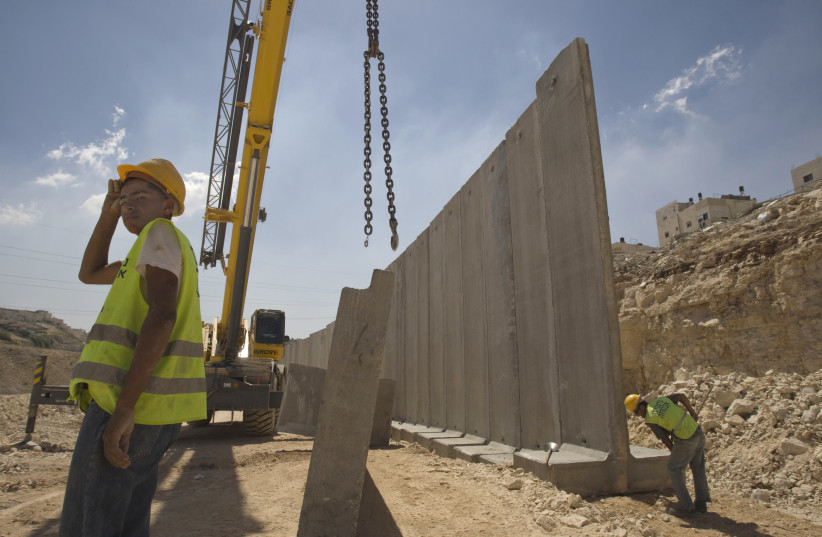Tens of thousands of Palestinians employed in Israel staged a one-day strike on Sunday in protest at a decision to pay their salaries into bank accounts rather than in cash.
"We reject having our salaries transferred to Palestinian Authority banks because we are afraid of the future and there is a crisis of trust,
Bassim Al-Waheidi, a 55-year-old construction worker
The new payment method was agreed between Palestinian and Israeli authorities looking for a more efficient and secure way to pay salaries, but workers fear that hidden fees and new taxes will cut into their wages.
About 200,000 Palestinians cross each day into Israel or Jewish settlements for work, earning on average more than twice as much as those employed by Palestinian state bodies and businesses.
Most of the workers do not have bank accounts and putting their salaries on the books would create a new revenue source for the financially-strapped Palestinian Authority (PA), while bringing a windfall in service fees for Palestinian banks.

Under the arrangement, salaries will be paid weekly with bank fees set at $1 per transfer, according to a number of workers who spoke to Reuters.
Palestinian Labor Minister Nasri Abu Jeish said the new arrangement was meant to protect workers' rights and that there was no plan to impose new taxes.
No immediate comment was available from The Unit for Coordination of Government Activities in the Territories (COGAT), Israel’s military liaison to the Palestinians.
The PA, which has limited autonomy in the West Bank, is responsible for roughly 150,000 public sector jobs in the West Bank and Gaza Strip. Its budget was $330 million for 2021 and it relies heavily on foreign donors.
Palestinian workers speak out
Mohammad Khaseeb, 43, who works at an aluminum factory in Israel, said he and thousands of others were protesting at a decision that he said was reached without taking workers' views into account.
"They decided without consulting the workers' union. Either a worker agrees or he loses his work permit," Khaseeb said.
Bassim Al-Waheidi, a 55-year-old construction worker, said that beyond losing money to bank fees and taxes, there was concern about other deductions being made.
"We reject having our salaries transferred to Palestinian Authority banks because we are afraid of the future and there is a crisis of trust," Waheidi said.
Workers' representatives said if the decision was not canceled they would escalate their protest and might declare an open-ended strike.
